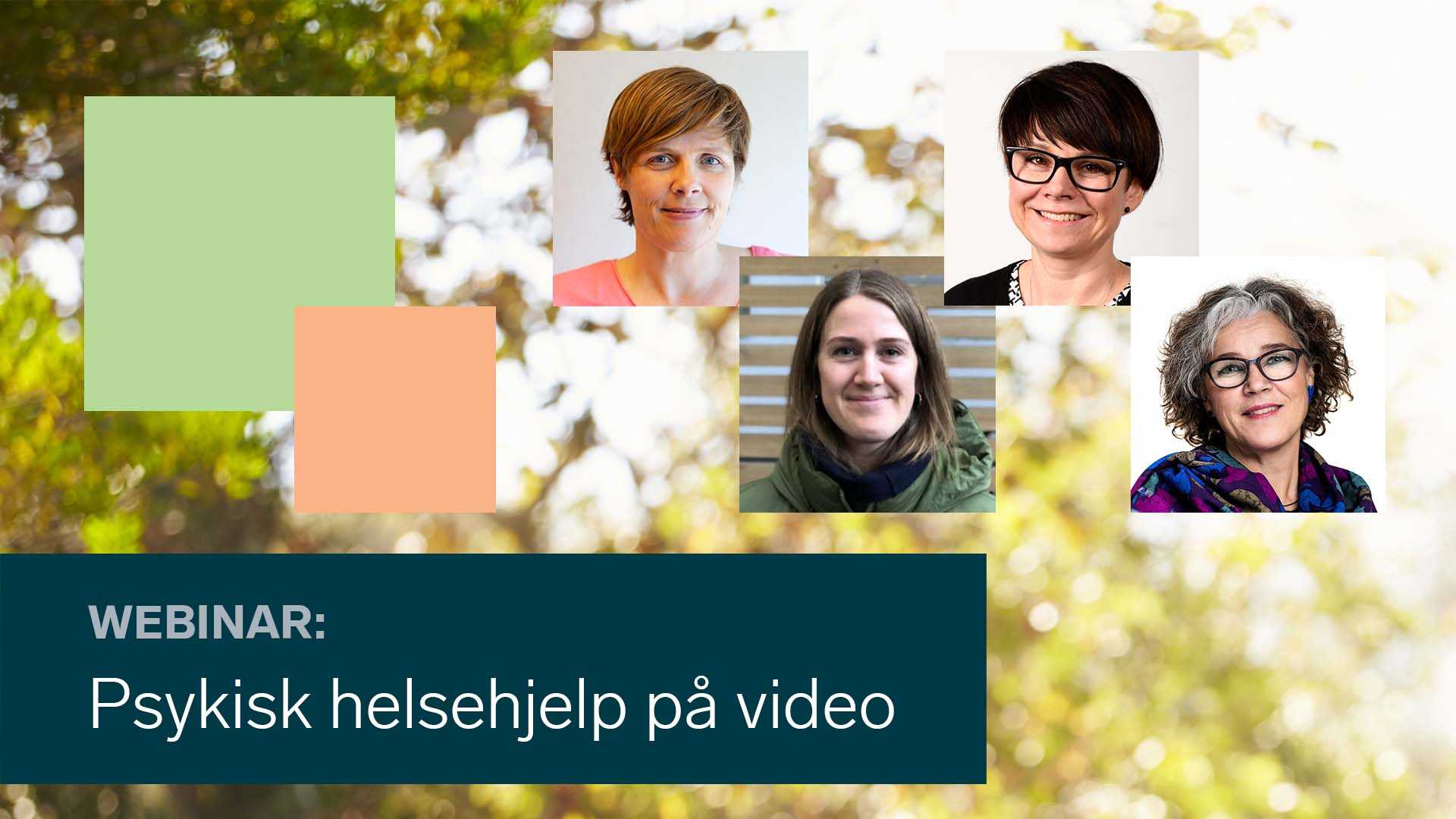Young family members: Caring for mental health over video
What do young people think about getting mental health care on video? Here are their views on flexibility, safety, and whether it's helpful.

All in all, users reported positive experiences of using video calls in therapy. Throughout the research process, we had co-researchers representing the users. That was highly valuable!
Presentation by senior researchers Marianne V. Trondsen and Unn S. Manskow from the Norwegian Centre for E-health Research, together with user representative Tone H. Mebust and national leader of the Blue Cross Compass, Frøydis Eidheim.
The timing of this research project could not have been better. Just before the corona pandemic closed down the country, the Norwegian Centre for E-health Research entered into a collaboration with Blue Cross Compass. Together, they would research a new, planned video-based service. The programme would provide help and support to young relatives in families with substance abuse problems.
The video offer has now existed since March 2020. How do young people experience receiving support and help via video? How did the therapists experience the abrupt transition from physical to video-based follow-up of users in connection with the corona pandemic?
Recording
You can download the podcast to your mobile on Apple Podcasts, Spotify or Podbean. Search for ‘Norwegian Centre for E-health Research’.